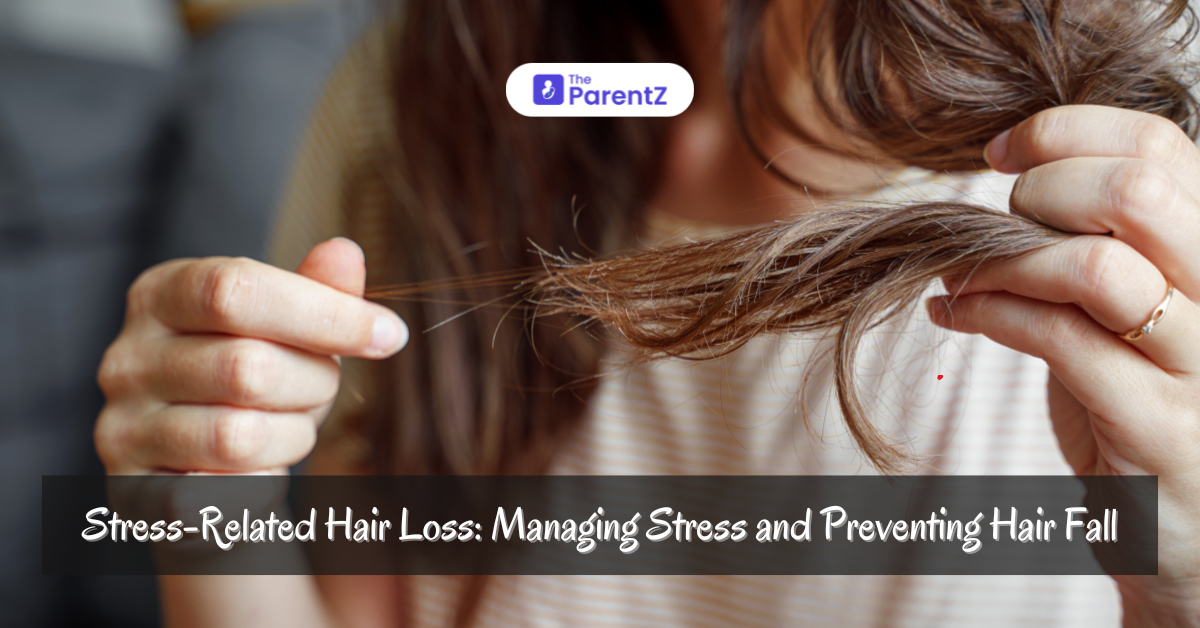Stress, an inevitable part of modern life, can manifest in various ways, including hair loss. This condition, often known as telogen effluvium, can be a huge source of anxiety and self-esteem issues. Understanding the underlying causes, symptoms, and effective management strategies is important for people experiencing stress-related hair loss. In this blog post, we will concentrate on the medical reasons behind stress-related hair loss and explore effective strategies for managing stress and preventing further hair fall.
Understanding the Relation Between Stress and Hair Loss
Excessive stress can disrupt the body's hair growth cycle. When produced in high amounts, the stress hormone cortisol can prematurely push hair follicles into a resting phase, resulting in excessive shedding.
Furthermore, stress can compromise the immune system, potentially causing autoimmune conditions such as alopecia areata, where the body's immune system erroneously targets hair follicles, leading to patchy hair loss.
Trichotillomania, a hair-pulling disorder, is another type of stress-related hair loss. People with trichotillomania experience an irresistible urge to pull out their hair, often as a coping mechanism for managing stress or anxiety.
Understanding the Medical Causes
While stress is a common trigger, other medical factors can contribute to this condition. These include:
- Hormonal imbalances: Hormonal Fluctuations, such as thyroid dysfunction or postpartum hormone changes, can affect hair growth cycles.
- Nutritional deficiencies: Deficiencies in vital nutrients like iron, zinc, and biotin can impair hair health.
- Medications: Certain medications, including blood thinners, antidepressants, and chemotherapy drugs, can induce hair loss as a side effect.
- Underlying medical conditions: Autoimmune diseases, infections, and chronic illnesses can contribute to hair loss.
Effective Stress Management Techniques
Recognizing and managing stress is crucial for preventing and treating stress-related hair loss. Here are some proven methods recommended by doctors:
- Mindfulness and meditation: These practices help reduce stress, improve focus, and promote relaxation.
- Regular exercise: Physical activity releases endorphins, elevates mood, and reduces stress.
- Sufficient sleep: Try 7-9 hours of quality rest every night to support overall health and well-being.
- Healthy diet: A balanced diet with nutrients vital for hair health, like iron, zinc, and biotin, can help strengthen hair follicles.
- Stress-reduction techniques: To manage stress effectively, explore techniques like deep breathing exercises, progressive muscle relaxation, and yoga.
- Professional support: If stress significantly impacts your life, seek help from a therapist or counselor.
Preventing Further Hair Loss
In addition to managing stress, there are other actions you can take to control further hair loss:
- Use better hair care products: Avoid harsh chemicals, extreme heat styling, and tight hairstyles that can damage hair and worsen hair loss.
- Consider hair loss treatments: Depending on the underlying reason for your hair loss, your dermatologist may suggest treatments like minoxidil, finasteride, or platelet-rich plasma (PRP) therapy to stimulate hair growth and prevent further shedding.
- Be patient and persistent: Recovering from stress-related hair loss takes time. Stick to your stress management plan and hair care routine, and consult with your doctor if you don't see improvements within a few months.
Conclusion
Remember, stress-related hair loss is often temporary, and with proper management and treatment, your hair can regain its strength and vitality. By prioritizing stress reduction and adopting healthy hair care habits, you can take control of your hair loss journey and feel more confident in your appearance.








Be the first one to comment on this story.